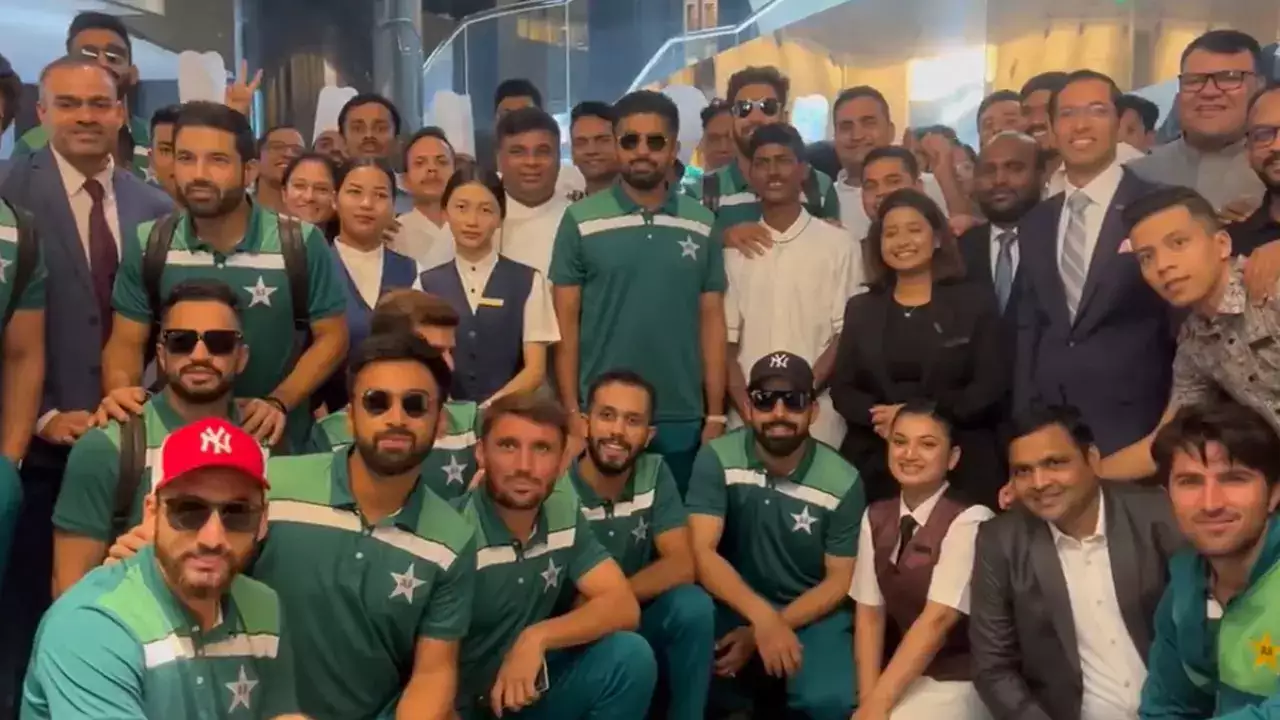In the lead-up to the ICC Cricket World Cup 2023, the warm welcome extended to the Pakistan Cricket Team in Ahmedabad has ignited a storm of controversy. While welcoming guests is an integral part of Indian culture, the timing and manner of this celebration have raised pertinent questions.
In a nation where the sacrifices of our soldiers in Kashmir are etched in our collective memory, the question naturally arises: Is it justified to roll out the red carpet for a cricket team at a time when our soldiers continue to protect our borders? The controversy surrounding the extravagant welcome of the Pakistan Cricket Team has led many to express dissatisfaction, arguing that such a spectacle might overshadow the sacrifices of our soldiers and the victims of terror attacks.
The world is currently grappling with numerous crises. The Israel-Palestine conflict, which has resulted in the loss of numerous lives, continues to be a cause for global concern. Against this backdrop, the decision of a cricketing star from Pakistan like Muhammad Rizwan to dedicate a victory to “brothers and sisters in Gaza” has further blurred the line between politics and sports. Is it justifiable to inject political and religious sentiments into a sporting event? Sports have historically been a unifying force, and the injection of such sentiments threatens to undermine that spirit.
Sexism, too, rears its ugly head in this spectacle. The inclusion of female dancers, dressed in traditional costumes, performing to a Bollywood number has sparked outrage. While welcoming guests with open arms is an inherent part of Indian culture, the choice to have women dance in this manner feels out of place and regressive. It’s high time we rethink these stereotypical displays of hospitality.
READ MORE: India must not play bilateral matches with Pak until terrorism ends
Moreover, the decision to host a music concert for the Pakistani team in the absence of an opening ceremony in this World Cup raises eyebrows. Why grant such special treatment to one team when all teams are equal participants in the tournament? This ‘VIP culture’ detracts from the spirit of fair competition and equality that should define sporting events.
The focus on the India-Pakistan game is understandable, given the fierce rivalry and the enormous viewership it garners. However, It’s time for the Board of Control for Cricket in India (BCCI) to make a choice—money or nation? In a world where the nation comes first, the answer should be clear.











